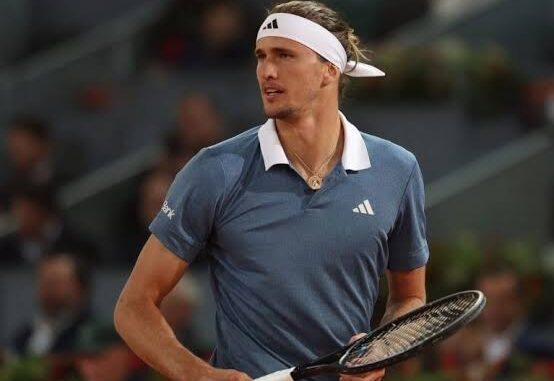
In an exclusive interview with Stan Sport’s Duncan McHarg-McKenzie, world No. 3 tennis star Alexander “Sascha” Zverev has unveiled a deeply personal tennis aspiration: his dream doubles partner is none other than his older brother, retired ATP pro Mischa Zverev. The revelation came during a wide-ranging chat ahead of the 2025 French Open, offering a rare glimpse into the German phenom’s familial bonds and emotional priorities .
Brotherly Love on the Court
While Zverev has partnered with tennis legends like Roger Federer in Laver Cup matches, his choice of Mischa underscores a profound connection forged through decades of shared history. The brothers have occasionally teamed up professionally, including:
Davis Cup Representation: Playing together for Germany in the prestigious team competition
Olympic Partnership: Competing in doubles at the Tokyo 2021 Games
Junior Development: Training under their Russian-born tennis-coach parents from toddlerhood in Hamburg
Table: Zverev Brothers’ Professional Doubles Record | Tournament Type | Matches Played | Notable Results | |———————|——————–|———————| | Davis Cup | Multiple ties | Quarterfinals (2018)| | Olympic Games | 2 events (2021, 2024)| Quarterfinals (2021) | | ATP Tour Events | Limited appearances | Focused on singles careers |
A Bond Forged in Tennis Tradition
The Zverev brothers’ relationship is steeped in tennis heritage. Their parents, Alexander Sr. and Irina, were elite Soviet players who emigrated to Germany in 1991. Mischa, nearly ten years Sascha’s senior, witnessed his baby brother’s astonishing early talent firsthand.
“Sascha picked up a racket at just one year and five months old,” their father recalled. By age five, he was receiving daily training, displaying relentless competitiveness. Mischa noted: “He would not understand or accept that he was losing. He would never want to leave the court unless he won” . This fierce determination, nurtured through countless hours of sibling rivalry on Hamburg’s courts, created an unbreakable tennis bond.
Why Mischa Makes Sense
Zverev’s choice carries emotional and tactical significance:
Complementary Styles: Mischa’s classic serve-and-volley approach contrasts with Sascha’s powerful baseline game, creating ideal doubles synergy
Unspoken Communication: Decades of shared experiences enable near-telepathic court coverage
Trust Factor: “Family first” mentality provides psychological security in high-pressure moments
The revelation comes during a turbulent period for Zverev, who recently survived a lightning strike on his flight to Paris. “We got struck by lightning… [and] had to do an emergency landing,” he recounted, delaying his Roland Garros preparation . This brush with mortality may have heightened his appreciation for family connections.
The Weight of Expectations
Zverev’s doubles revelation contrasts with his ongoing singles challenges. Despite 24 ATP titles and Olympic gold, he carries the burden of a 1-13 record against top-five players in Grand Slams after his recent Australian Open final loss to Jannik Sinner. Some analysts now label him “the best player to never win a major” .
In this context, choosing Mischa symbolizes more than doubles preference—it represents sanctuary. As Sascha confronts tennis mortality at 27, his brother embodies unconditional support. This dynamic surfaced recently when Zverev passionately defended Novak Djokovic from booing crowds, stating: “Please don’t boo a player when he goes out injured… Show some love” —a sentiment surely amplified by his brother’s career-ending injuries. The Unfulfilled Dream Matchup
Ironically, a full-fledged Zverev brothers doubles campaign remains unlikely. Mischa retired in 2023 after peaking at world No. 25 in singles, while Sascha focuses on his singles legacy. Their dream partnership now exists primarily in:
Exhibition matches
Training sessions
Sascha’s public acknowledgment of their bond
Yet the symbolism resonates beyond practical tennis. As McHarg-McKenzie’s interview reveals, behind Zverev’s formidable on-court persona lies profound loyalty to the brother who witnessed his journey from Hamburg apartments to Grand Slam finals. “I think I have pretty good technique, which my mum did at a young age,” Zverev once reflected. “My backhand… is 100 percent down to my mum” —a family-first ethos extending to his doubles aspirations.
As Zverev prepares for another French Open campaign—where he finished runner-up in 2024—this revelation humanizes a player often defined by near-misses. Choosing Mischa acknowledges that even elite athletes measure success not just in trophies, but in shared dreams with those who knew them before the fame.
Leave a Reply